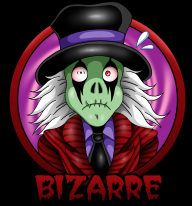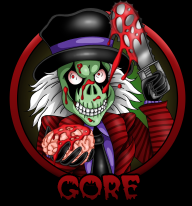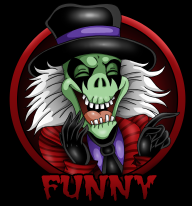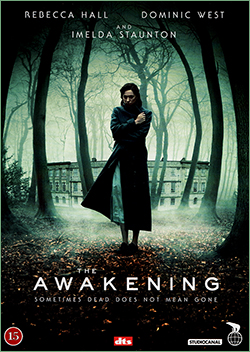 It’s 1921, and the author Florence Cathcart is working with the police in order to expose spiritualist fraud. During a “séance” she reveals all the medium’s tricks, but instead of being shown gratitude from the grieving mother who hoped to get in contact with her deceased child, she is instead met with a slap in the face. Some people would rather live in delusion, apparently. Upon arriving back home, she is visited by a guy called Robert Mallory, who wants her to investigate the sightings of a ghost boy who has been seen at the boy’s boarding school in Cumbria where he is a teacher. 20 years earlier, the school had been a private home. Upon arriving at the school, Florence meets the housekeeper, a woman named Maud Hill, who is a big fan of her book and says she keeps it right alongside her bible. Which is a bit ironic, considering Florence’s book is founded in skepticism…oh well. When Florence starts investigating, she first thinks the so-called supernatural events are nothing but children’s shenanigans, but soon she finds that the old house holds many secrets, and both recent events and those from the past slowly start unveiling themselves.
It’s 1921, and the author Florence Cathcart is working with the police in order to expose spiritualist fraud. During a “séance” she reveals all the medium’s tricks, but instead of being shown gratitude from the grieving mother who hoped to get in contact with her deceased child, she is instead met with a slap in the face. Some people would rather live in delusion, apparently. Upon arriving back home, she is visited by a guy called Robert Mallory, who wants her to investigate the sightings of a ghost boy who has been seen at the boy’s boarding school in Cumbria where he is a teacher. 20 years earlier, the school had been a private home. Upon arriving at the school, Florence meets the housekeeper, a woman named Maud Hill, who is a big fan of her book and says she keeps it right alongside her bible. Which is a bit ironic, considering Florence’s book is founded in skepticism…oh well. When Florence starts investigating, she first thinks the so-called supernatural events are nothing but children’s shenanigans, but soon she finds that the old house holds many secrets, and both recent events and those from the past slowly start unveiling themselves.
The Awakening is a British supernatural drama-horror film from 2011, directed by Nick Murphy and written by Stephen Volk (who also wrote Ghostwatch and The Guardian) and Murphy. It was shot on location in the United Kingdom, in Trinity Church Square London, Berwickshire, East Lothian, Lyme Park in Cheshire and Manderston House in Manderston. While the outside is Manderston House, the inside of the school was filmed in Marchmont House, both situated on the outskirts of Duns in the Scottish Borders.
The film is very much what you would expect, both from its description and first glimpses: a ghost story with a certain elegance, more drama than horror, but upheld with strong performances, a continuous build-up of mystery, and gorgeous cinematography. You could say that the movie is a little bit in the same category as The Others and The Orphanage. The main character is steeped with personal conflicts and grievances, with old secrets waiting to be revealed. It is told early in the film that Florence’s fiancé died during the war, and Robert has his fair share of issues after being traumatized by the war. With the story set in the early 1920’s, it’s a time where people had gotten used to an abundance of death both from the war and the influenza (Spanish Flu) that killed a lot of people during those times. And of course, some shady characters are thrown in as well: a sadistic school teacher, and a creepy groundskeeper who is very obviously up to no good.
Like in many a classic ghost story, the atmosphere is reliant on the surroundings, and here we get plenty of old buildings with all kinds of dark, creepy corners and ominous-looking paintings covering the walls. Much of what is happening is rather subtle, but there are some scenes with an old doll house which is quite effective. The Awakening is a classic, old-fashioned ghost story that won’t keep you awake at night, but it’s overall a nice addition to any collection of supernatural ghost horror movies.


Director: Nick Murphy
Writers: Stephen Volk, Nick Murphy
Country & year: UK, 2014
Actors: Rebecca Hall, Dominic West, Imelda Staunton, Isaac Hempstead Wright, Shaun Dooley, Joseph Mawle, Diana Kent, Richard Durden, ohn Shrapnel, Cal MacAninch, Lucy Cohu, Anastasia Hille
IMDb: https://www.imdb.com/title/tt1687901/
![]()
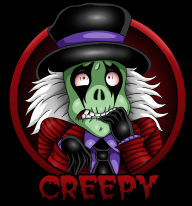



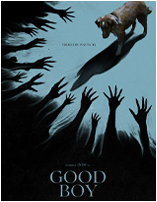











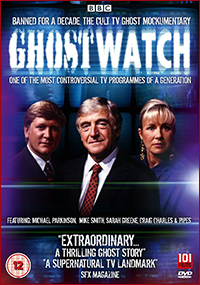 “Ghostwatch” is a live-documentary that was broadcasted on Halloween night on British national television in 1992. The show opens in a studio at BBC with the dry elderly host Michael Parkinson in suit and tie, saying “The program you’re about to watch is a unique live investigation of the supernatural. It contains material that some viewers may find to be disturbing.” Then we get introduced to the “most haunted house in England”, a council house in North London, where a single mother and her two young daughters are being tormented by poltergeist activity. With BBC’s reporters, cameras and some paranormal investigators in place, they’re ready to hopefully get some paranormal activity on tape for the whole of Britain to see live. The studio also has a phone-number the viewers can call during the broadcast to share their own experiences with the paranormal. Further into the investigation we learn that the family is apparently haunted by a male ghost called Pipes, who likes to hide behind the curtains in the children’s bedroom. We even see a manifestation of him in the children’s bedroom after they’ve gone to sleep, and things starts to get from bad to worse while the cameras keeps rolling.
“Ghostwatch” is a live-documentary that was broadcasted on Halloween night on British national television in 1992. The show opens in a studio at BBC with the dry elderly host Michael Parkinson in suit and tie, saying “The program you’re about to watch is a unique live investigation of the supernatural. It contains material that some viewers may find to be disturbing.” Then we get introduced to the “most haunted house in England”, a council house in North London, where a single mother and her two young daughters are being tormented by poltergeist activity. With BBC’s reporters, cameras and some paranormal investigators in place, they’re ready to hopefully get some paranormal activity on tape for the whole of Britain to see live. The studio also has a phone-number the viewers can call during the broadcast to share their own experiences with the paranormal. Further into the investigation we learn that the family is apparently haunted by a male ghost called Pipes, who likes to hide behind the curtains in the children’s bedroom. We even see a manifestation of him in the children’s bedroom after they’ve gone to sleep, and things starts to get from bad to worse while the cameras keeps rolling.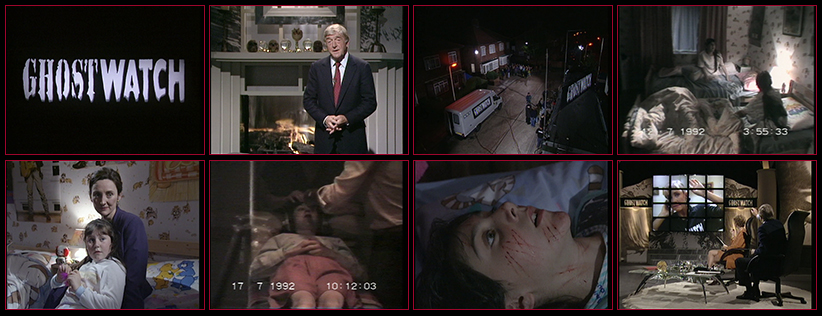

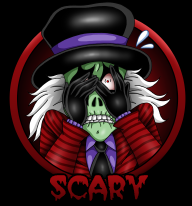
 As I had always thought that The Exorcist was William Friedkin’s one and only pure horror movie, I didn’t know what to expect from this slightly obscure little film called “The Guardian” when it finally came into my radar. So let’s check it out.
As I had always thought that The Exorcist was William Friedkin’s one and only pure horror movie, I didn’t know what to expect from this slightly obscure little film called “The Guardian” when it finally came into my radar. So let’s check it out.
